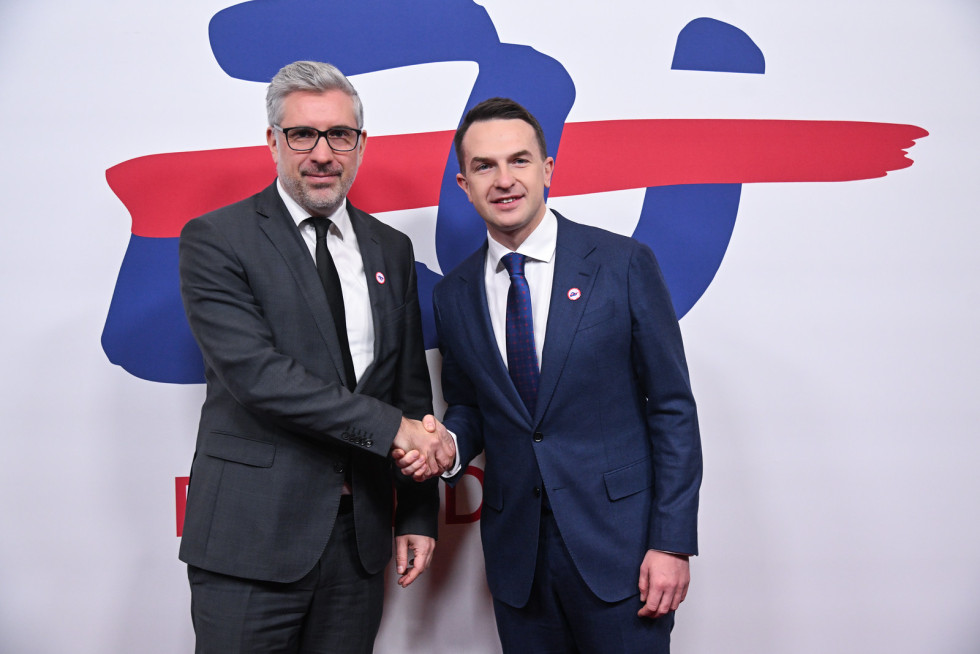State Secretary Štucin attends informal meeting of European affairs ministers in Warsaw

State Secretary Marko Štucin before the informal meeting | Author Ministrstvo za zunanje zadeve Poljske
The breakfast meeting, to which the ministers of the candidate countries and potential candidates were also invited, focused on the impact of hybrid threats on the enlargement process and possible options for action.
State Secretary Štucin stressed the importance of political stability in Europe, also with regard to the current geopolitical changes, while also emphasising the important political position that the EU holds with its enlargement policy. He underlined that hybrid threats, including foreign manipulation with information and interference, aim to undermine democratic processes and that broader cooperation is needed in the field of cyber security. This is why Slovenia is actively working to strengthen cyber capacity in the Western Balkans. Alongside France and in cooperation with Montenegro, Slovenia has helped set up and launch the Western Balkans Cyber Capacity Centre, a centre for the training of experts in this field, which is located in Podgorica and is working towards becoming an international organisation.
During the discussion on the next Multiannual Financial Framework for the EU, State Secretary Štucin highlighted the need for an ambitious EU budget to finance new EU priorities, while ensuring the continued importance of cohesion and the common agricultural policy. Maintaining adequate financing for cohesion and the common agricultural policy is essential for Slovenia. We are aware that more funds will also need to be allocated to priority tasks, such as the competitiveness of the European economy and defence. He also commended the EU Commission on accelerating the work on resilience and preparedness for climate-related disasters.
Regarding the financing of the EU budget, the State Secretary noted that the current source, which is based on the gross national income, is the most equitable. On the proposals for new own resources, he noted that the resource with the most support in the negotiations so far has been the one based on the Carbon Border Adjustment Mechanism (CBAM).
In the discussion on civilian and military preparedness, State Secretary Štucin said that in Slovenia many activities in this field are based on a society-wide approach. He stressed the importance of informing the general public and all generations about the objectives of civil protection, military defence, protection against natural and other disasters and raising awareness of the various risks. He also underlined the importance of public-private partnerships in building resilience for the effective functioning of the public sector and the resilience of the private sector.

